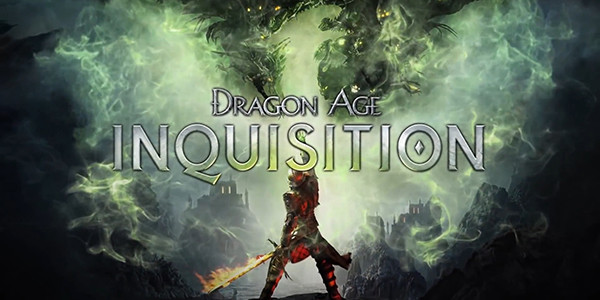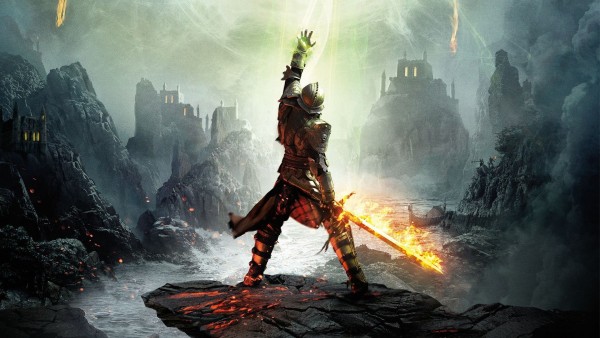Dragon Age is another in a strong list of BioWare franchises that has a strong, loyal, and sometimes fierce following; when games in their franchises try to hit a massive audience outside of their core user base things often get kind of messy and, unfortunately, as a result, good standalone games and franchise entries get dragged through the dirt. Inquisition is one of those games and, in an effort to try and re-establish itself with that wider audience and show some loyalty to its core audience, BioWare releases a Game of the Year edition to give those who either haven’t played the game at all or haven’t engaged in any of the extra content that’s available for the game.
The Good, The Bad and The Ugly
Like most AAA role playing games, the first twenty minutes is almost purely exposition and introduction to the setting, the characters, and the gameplay: what you’re getting and what you’re introduced to is a blending of the previous titles in the franchise and looks to wrap everything up. Even if you’re a newcomer to the series, there’s not a noticeable detriment to coming into the franchise as you have options; you can either work with the default world state or you can experiment on Dragon Age Keep, a website that ties into your Origin account and allows you to mess around with world states, which is really cool. Due to circumstances out of my control, Dragon Age Keep allowed me to recreate the world state in saves I had used in previous titles.
Introduction to combat doesn’t happen without too much hand-holding and it’s done within the narrative so it doesn’t feel as though it creates too much of a interruption in the experience. The first bit of this game is exactly what I expected to see from a BioWare title.
In my humble opinion, they took everything that succeeded in both of the former titles in the franchise and blended them together to provide the framework that this game is built around. BioWare knows that if they have a vision they know how to bring it to life and that’s something they’ve done for as long as I’ve known them and their role playing games have been spot-on for this. Inquisition is absolutely no different in this as it provides an experience that feels just as great at being a game as it is a wonderfully presented narrative.
One of the largest things that stand out for this game is that it was made with two ideals in mind: broad appeal and taking advantage of current generation technology. It’s very clear that they’re trying to create a singular type of experience and if you’re a fan of the franchise like I am, this is exactly what you want. I came in with a certain set of expectations and I feel that Inquisition hit every one of them. I feel that one could dive in as any kind of player and feel that you could be immersed relatively quickly.
The graphical and audio presentation is extremely satisfying – on current generation consoles, the game looks, feels, and sounds marvelous. Voice acting is very well done and, surprisingly so, the lip sync is actually done pretty well, most times. There’s rarely any slowdown.
Its greatest strength, however, is also its greatest failings: I feel that the experience does not transfer over in the same way into previous generation’s systems. The appeal is so broad that, at times, it feels watered down. It’s clear to me that Inquisition was tailored for a very specific experience and everyone else that has any different demands from the game gets to suffer.
There are trivial issues that I could list off that are nothing more than just pet peeves but there are enough of them to note that I feel they should not be featured in the game the way that they have been: the worst of all is the removal of mana and healing magics. This means that, between rest stops and reload points, you’re limited to a certain number of healing potions and that is it. That’s creating a false sense of difficulty and that’s a terribly lazy design choice. In previous generation systems, there are a massive amount of pathfinding and collision detection bugs that can break the experience of traveling between locales. Story progression happens in spurts and the spots in between those spurts really only cater to those who greatly enjoy the lore of the franchise.
While this defines me, gameplay and story progression only rewards those who greatly enjoy both. If you feel that one or the two are lacking, it will taint the other experience. This game would be awesome if only it were way more refined, smooth, and immersive.Read More


